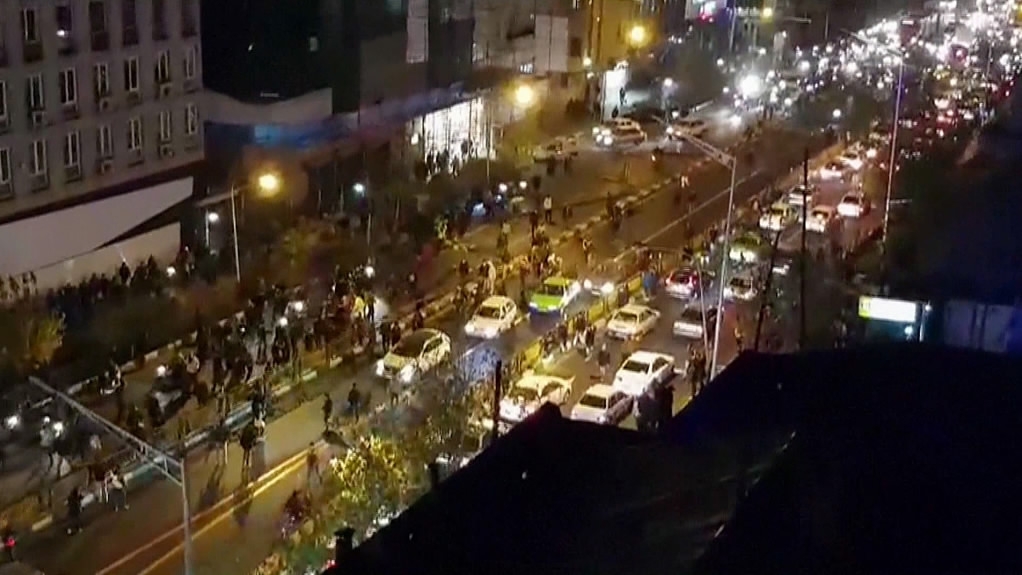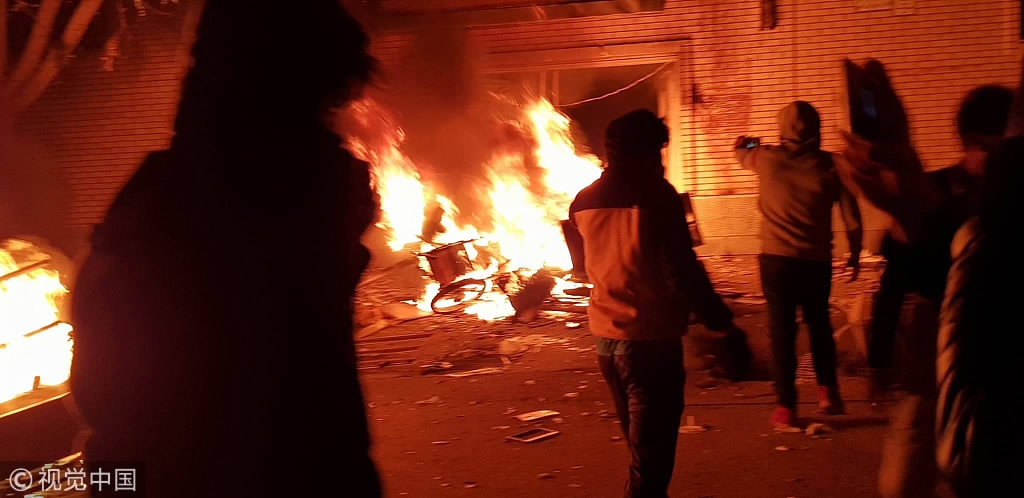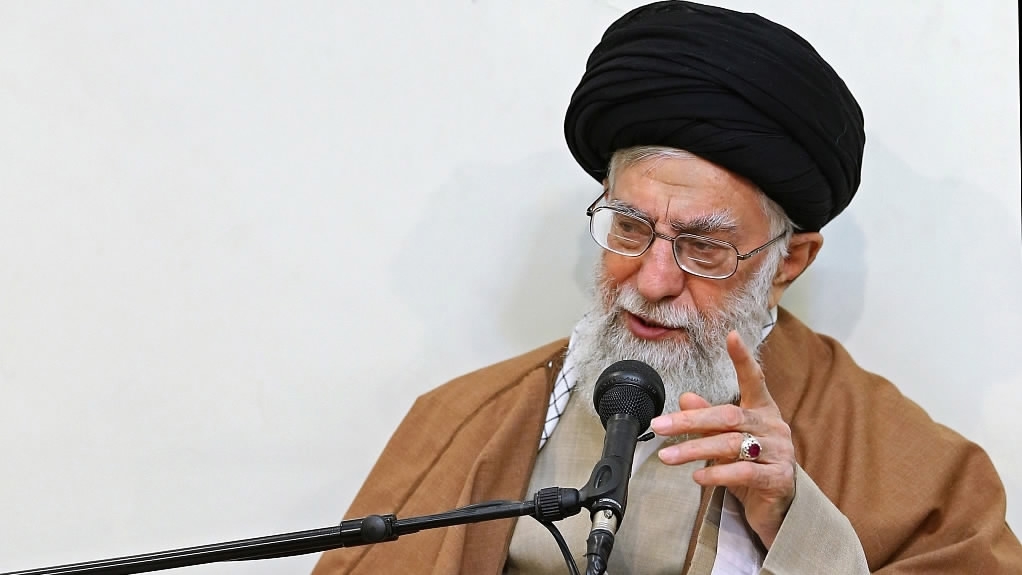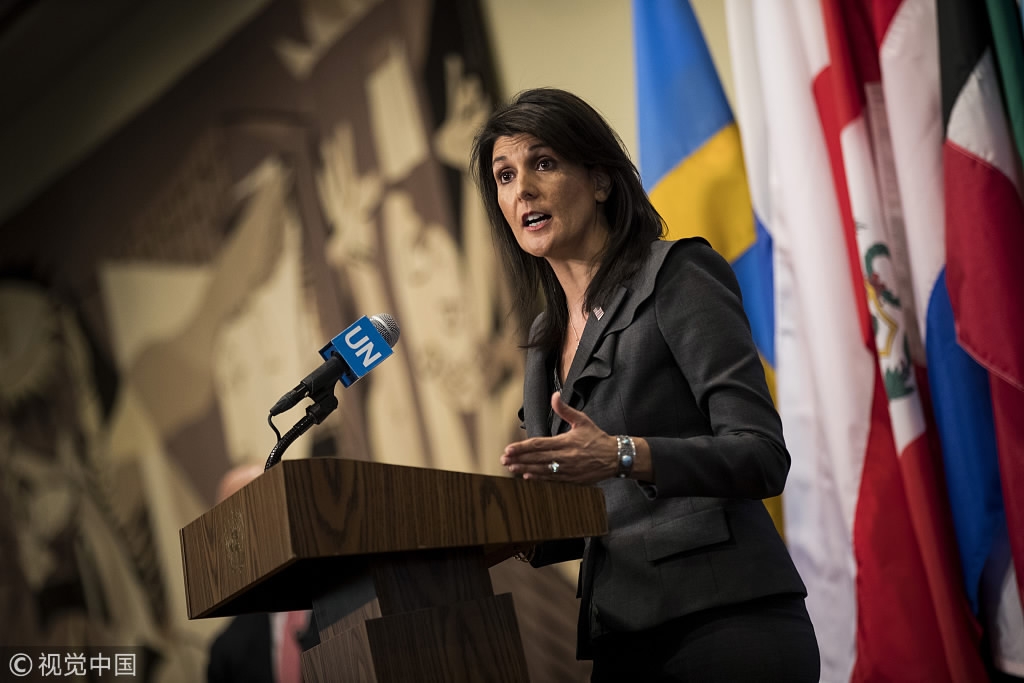
Opinions
15:00, 03-Jan-2018
Opinion: Are Iran protests driven by domestic or outside forces?
CGTN Guest Commentary by Dr. Summer

The protests that have swept across Iran since last week have shown some twists in themes and causes.
The demonstrators began by expressing their dissatisfaction over the country’s economic reforms and price hikes as well as change of the religious codes, but soon other voices were heard, such as “no sacrifice for Gaza nor Lebanon” and “leave Syria". Thus, the protest became a broader outcry against the government.
US President Donald Trump has repeatedly tweeted his support for the protesters, criticizing the Iranian government as “brutal and corrupt” and saying it is “TIME FOR CHANGE!”
According to reports by CNN, the Iranian authorities have nonetheless responded with mass arrests and by restricting the use of social media apps Instagram and Telegram that are used to organize rallies.

People protest in Tehran, December 30, 2017. /VCG Photo
People protest in Tehran, December 30, 2017. /VCG Photo
The US State Department said it is encouraging tech companies to try to keep such sites accessible in Iran. Undersecretary of Public Diplomacy Steve Goldstein was quoted as saying: “The message: We want to encourage the protesters to continue to fight for what's right and to open up Iran.”
Meanwhile, Iranian Supreme Leader Ayatollah Ali Khamenei on Tuesday blamed Iran's “enemies” for stirring up unrest, saying that the bad elements “have all joined forces in order to create problems for the Islamic Republic and the Islamic Revolution.”

Iranian Supreme Leader Ayatollah Ali Khamenei. /VCG Photo
Iranian Supreme Leader Ayatollah Ali Khamenei. /VCG Photo
But the US Ambassador to the United Nations Nikki Haley said any assertions that the protests are designed by Iran's enemies are “complete nonsense” and that the US would ask Security Council members for an emergency session in New York and the Human Rights Council in Geneva to discuss the protests. She stressed that “The people of Iran are crying out for freedom. All freedom-loving people must stand with their cause.”
If the protests are all about domestic problems in Iran, why then is the White House so concerned about the country? A cover story by the Christian Science Monitor on December 17 might shed some light on the issue. The paper reads: Iran has emerged from the anti-ISIS battlefields in Iraq, Syria, and beyond as an unrivaled regional superpower with more hard- and soft-power capacity to shape events in the Middle East than it has ever before experienced.
Tehran’s rapid rise poses new challenges to the US, Israel, and Saudi Arabia as it undermines their previous dominance.
So, although the riots in Iran seem to have started with domestic problems, outside forces have certainly added oil to the fire. However, a solution to the situation bears some similarity to the process of hatching an egg. If you want to have a chick, you must first have an egg.

US envoy Nikki Haley called for an urgent UN meeting on Iran protests. /VCG Photo
US envoy Nikki Haley called for an urgent UN meeting on Iran protests. /VCG Photo
Then, you need a hen or a hatching machine with the right temperature. You can never hatch out a chick from an egg-shaped stone nor can you get a chick from an egg if the temperature is not right. In the case of Iran, I think that there are certainly domestic problems which need to be taken care of by the Iranian government, but there are also strategic considerations by the major players in the region to maintain the status quo, which is constantly facing challenges from Tehran’s rising influence in the region.
The direction and pace of immediate and future changes in Iran therefore depend upon not only the wisdom of the Iranian leaders and the will of the Iranian people but also interests of the different political forces in the region.
(The author, who holds a PhD in communications from China University of Communications, has been working in the field of international journalism for 30 years. The article reflects the author's opinion, and not necessarily the view of CGTN. )

SITEMAP
Copyright © 2018 CGTN. Beijing ICP prepared NO.16065310-3
Copyright © 2018 CGTN. Beijing ICP prepared NO.16065310-3